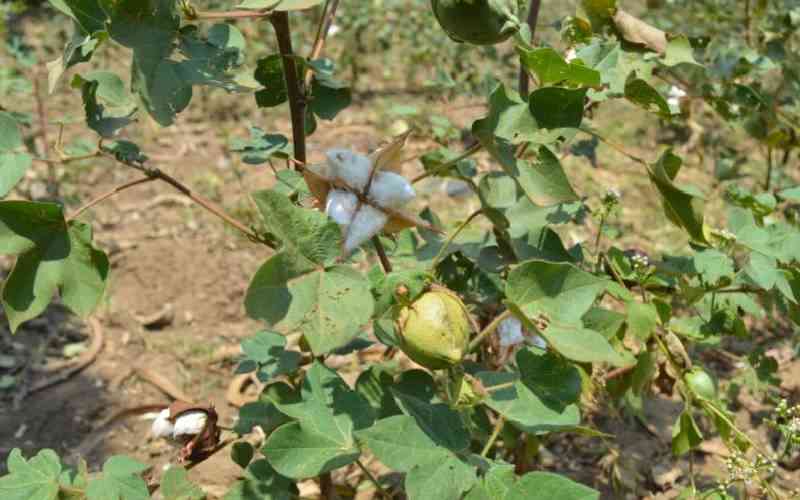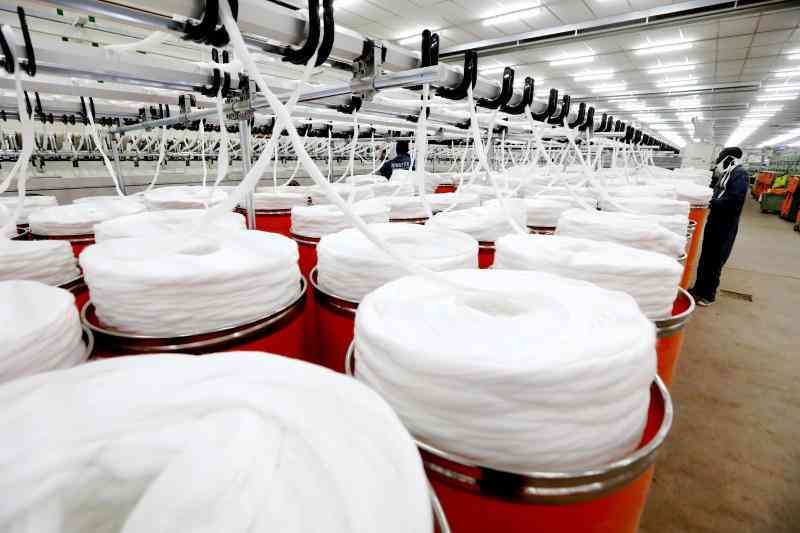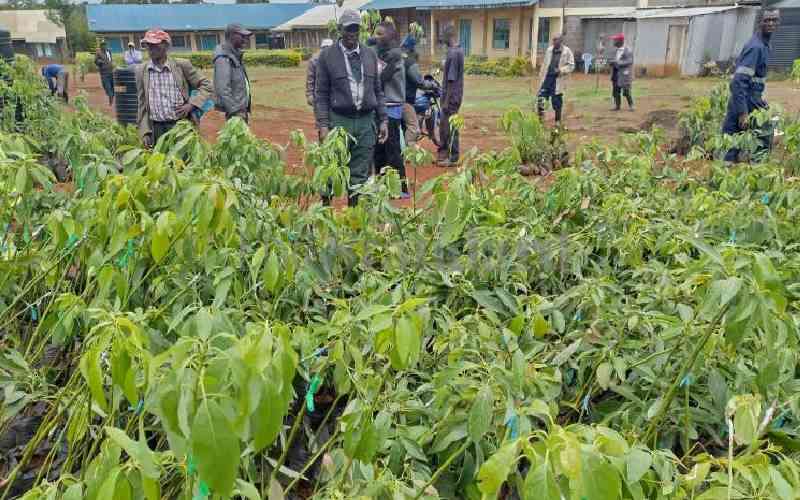
The ginnery, located in Wanguru township, Mwea, stopped operating after the private company that owns it complained that cotton production in the area had become unsustainable.
One of the company directors, Ndambiri Makanga, said when his group bought the factory from the government in 2005 in a privitisation programme, only about 5,000 cotton farmers were active.
''We revived the sector and started receiving cotton from these farmers, whose number almost doubled due to the good returns until 2010, when problems cropped up,'' he said.
He claimed that some farmers started selling their produce to brokers, starving the ginnery of raw materials.
Cotton prices had risen from Sh20 per kilogramme to Sh42, prompting farmers to divert some of the commodity to the black market.
''This is what led to the closure of the ginnery - we started receiving cotton that was uneconomical to gin and our company consequently went under with an outstanding loan of Sh25 million the farmers owed us,'' said Mr Makanga.
The ginnery has four godowns that were used to store cotton, a seed store, a ginning hall, a bales shed, and staff quarters.
Makanga blamed the collapse of the cotton sector in the area on the high cost of farm inputs and lack of incentives from the government.
The few farmers who are still producing cotton incur high costs because they have to transport the crop to ginneries in either Kitui or Meru.
On average, each farmer produces between 300 and 370 kilogrammes of cotton.
In Mwea, the crop is grown outside the rice irrigation scheme and on a small scale by individual farmers who cite pests and poor quality seeds as the main impediments to the sector.
One such farmer, Gerald Warui from Ngucwi village, produced cotton for years but has abandoned it because of low returns.
He cites the high cost of pesticides and other inputs, low-yielding varieties, and transport costs to Kitui as the main reason for abandoning the cash crop.
''Imagine you have only harvested 400 kilogrammes of cotton which you must transport to Kitui or Meru for processing and end up being paid Sh42 per kilogramme. What kind of business is that?'' he asked.
Stay informed. Subscribe to our newsletter
Revive the sector
Experts want the government to help revive the sector by passing the Biosafety Act to allow the introduction of high-yielding biotechnology cotton (BT).
A Mwea-based crop scientist, John Kimani, said BT cotton can raise production from the current 570 kilogrammes to 1,700 kilogrammes for each small-scale farmer. He cited the example of countries such as Israel, South Africa, India, and China that have embraced the variety.
The variety, which has been planted on a trial basis at the Kenya Agricultural Livestock and Research Organisation, Mwea centre, cannot be released to farmers until the Bill is approved by Parliament.
Experts say at least 384,000 hectares of idle land can be put under rain-fed and irrigated cotton production if the variety is approved.
Until that happens, cotton farmers in Mwea, and in the country at large, face a bleak future.
Duty-free entry
''Kenyans will never benefit from the African Growth and Opportunity Act, the programme that provides for duty-free entry of textile products to the United States since the cotton used by our firms is mostly imported," said Dr Kimani.
He added that once BT cotton is authorised for planting, its benefits shall go beyond the textile industry. It is expected to benefit dairy farmers too, besides opening up many cottage industries related to its byproducts.
Kimani said that several major economies in the world rose from textile industries.
 The Standard Group Plc is a
multi-media organization with investments in media platforms spanning newspaper
print operations, television, radio broadcasting, digital and online services. The
Standard Group is recognized as a leading multi-media house in Kenya with a key
influence in matters of national and international interest.
The Standard Group Plc is a
multi-media organization with investments in media platforms spanning newspaper
print operations, television, radio broadcasting, digital and online services. The
Standard Group is recognized as a leading multi-media house in Kenya with a key
influence in matters of national and international interest.
 The Standard Group Plc is a
multi-media organization with investments in media platforms spanning newspaper
print operations, television, radio broadcasting, digital and online services. The
Standard Group is recognized as a leading multi-media house in Kenya with a key
influence in matters of national and international interest.
The Standard Group Plc is a
multi-media organization with investments in media platforms spanning newspaper
print operations, television, radio broadcasting, digital and online services. The
Standard Group is recognized as a leading multi-media house in Kenya with a key
influence in matters of national and international interest.









